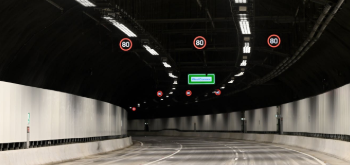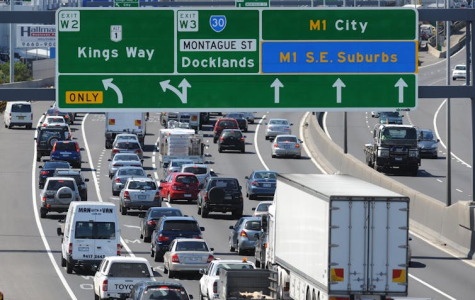
If you’ve ever driven in Sydney, Melbourne or Brisbane, chances are you’ve used – or steered clear of – a private toll road.
Those three cities are home to 22 private toll roads. And one giant company, Transurban, operates 18 of them: 11 in Sydney, all six toll roads in Brisbane, plus Melbourne’s CityLink.
So, how did Australia become so dependent on privatised toll roads? And what problems can it create for commuters, governments and the wider economy?
Public–private partnerships
Australia’s toll roads are mainly built and operated under what are called public–private partnership contracts.
Under this model, a private operator finances, builds and maintains a road in return for the right to collect tolls – often for decades at a time.
State governments have embraced this model because it allows them to avoid massive upfront spending, and shifts construction and financing risks onto private firms.
The modern toll road era arguably began with the contract for Melbourne’s CityLink in 1996, along with the creation of Transurban (a consortium of Australia’s Transfield Holdings and Japan’s Obayashi Corporation).
Transurban has grown into one of the world’s largest toll road operators, worth about A$45 billion. In the most recent financial year alone, Transurban brought in $987 million from Melbourne CityLink tolls alone.
Where the model breaks down
Public–private partnerships are sold as a way to shift financial risk away from government.
The problem is, private investors who fund toll roads build these risks back into the contracts they have with governments.
In some early toll contracts, the government included clauses cushioning operators against low returns.
For example, under the CityLink deal, Transurban was formally required to pay the Victorian government hundreds of millions of dollars in concession fees over the life of the project. But the contract also allowed the company to defer those payments if its internal rate of return fell below 10%.
That effectively shifted part of the financial risk back onto taxpayers.
Other long concessions guarantee annual toll increases – often whichever is higher of 4% or the rate of inflation – to shield financiers.
Predicting and managing road use
Our reliance on this model of road funding creates other issues too. One is the process creates incentives for toll operators to be over-optimistic when forecasting how many vehicles will use a proposed road.
A federal review of 14 Australian toll roads found first-year traffic was an average 45% under forecast and was still 19% down after six years. Studies show it’s a similar story around much of the world.
Companies bidding for a toll road contract have an incentive to put forward higher traffic forecasts, because it makes their proposal look stronger. If they expect more cars, they can promise more toll revenue and offer the government a better price up front.
On some contracts, this might lower the government’s initial costs, if the toll operator takes on the risk of how many people will use the road and banks on future tolls. But if the contract guarantees the government will cover any revenue shortfall, the risk shifts back to taxpayers.
The system also puts revenue ahead of optimising traffic flow. Toll contracts are designed to guarantee revenue for investors – not to manage demand.
That means operators don’t adjust prices to ease peak-hour congestion, and tolled roads don’t necessarily make the wider network operate more efficiently.
Little genuine competition
Transurban’s scale allows it to dominate bids for new projects, often out-competing smaller rivals. Over time, this has produced a monopoly-like situation across cities on Australia’s east coast.
In some cases, governments have extended Transurban’s concessions in return for funding other projects, without putting the extensions to open tender.
An example is Melbourne’s West Gate Tunnel deal, in which the Victorian government granted Transurban a ten-year extension of its CityLink tolling rights (to 2045) in exchange for delivering the new tunnel.
An independent review commissioned by the New South Wales government concluded Transurban’s dominance has created a market with little genuine competition.
Equity is a major problem
Then there’s the unfairness of the system as a whole.
For one, the burden of tolls is not spread evenly. Drivers in Sydney’s outer west and northwest often face weekly bills of $100 or more, which can amount to 10–20% of income for lower-earning households.
Many inner-suburban residents with access to better public transport can avoid these charges.
In Victoria, unpaid tolls can be converted into state-enforced fines – debts that can balloon into tens of thousands of dollars.
For trucking companies, tolls can amount to tens of thousands of dollars per vehicle each year. Faced with those costs, operators often have two bad options: take detours through suburban streets to avoid tolls, or absorb the charges and pass them on through higher freight rates.
The first option risks turning local roads into freight corridors, with added safety, noise and air pollution problems for residents. The second filters straight into the cost of goods and everyday living.
Rethinking the future of tolling
The first step towards fixing the system is fairer, more transparent contracts. Windfall profits – the extra gains a toll operator makes when revenues turn out far higher than expected – should be capped, revenue-sharing with governments made standard, and toll increases tied to performance rather than guaranteed indexations.
Oversight also needs to be genuinely independent and open to public scrutiny.
The second is a smarter pricing system. Analysis shows a network-wide distance-based charge in Sydney – a few cents per kilometre at peak times only, coupled with reduced registration fees – could cut congestion while raising billions.
Roads are public goods. Our toll system should treat them that way.
This article is republished from The Conversation under a Creative Commons license. Read the original article.








